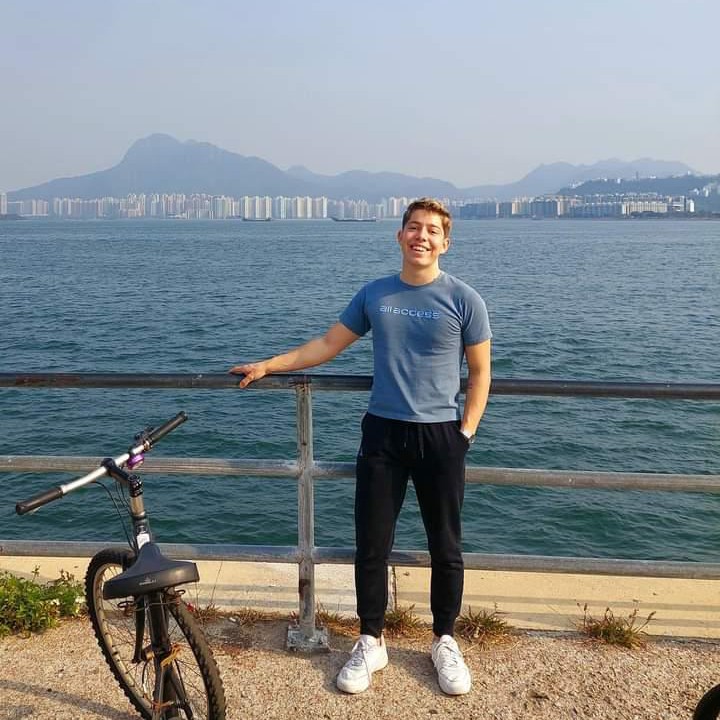Does respect look different in different cultures? What is respect even? And is respect influenced by the surroundings, or are the surroundings shaping how we regard and show respect?
Respect is tolerance for other people and the differences we are identified by. It is an understanding of our cultural, historical, opinion-based, and generational variations. Respect is how we show that everyone is welcome in this world, no matter who they are, what they are, where they are, and with whom they are.
Still, respect is shown in various ways and sometimes in no way at all. For me, respect is an inestimable value, something that we must exercise if we wish to be respected ourselves. Respect is one of the most valuable acknowledgements we can obtain, and without it no harmonious environment can be sustained.
Where I come from, respect is about recognising each other’s worth regardless of status, hierarchies, and titles. It is looking the person in front of you in the eyes with candour and humility. Respect is about knowing and showing that everybody else is worth just as much as you—perhaps in another field, group, or community—but nevertheless possesses the same significance.
Sometimes, however, respect may be challenging to employ or detect, and living in an environment so contrasting from what I was born into, I have become curious about the idea of respect in distinct societies. In a world of distractions and where our attention is worth millions, distinctively showing respect might be harder than ever before.
To get an understanding of the impact culture has on our perceptions of respect, I have asked Rouven and Lena what it means to them.

Rouven, Switzerland
“Sometimes I’m also trying to
define respect over what I feel is not respectful.“
When I ask Rouven how much he values respect, he promptly answers, “A lot.” To him, respect is tolerance to the individual before you, it is “validating someone else’s feelings and actions and making sure you listen to them and acknowledge them,” even though you might have opinions not aligning with what is being presented.
Rouven is a very considerate person, and his fascination and interest in other people’s stories, perspectives, and narrations never cease to impress and stun me. At all times, you feel the respect he is paying to you, and his omnipresent honesty and patience are truly admirable. However, he always has a very clear understanding of his own values and morals, and being respectful is “a very crucial part of human interaction.”
Being brought up in Switzerland, Rouven’s culture has aided in shaping his understanding and perspective of respect and navigating the world in which respect is not always equal or even present, he has come to reflect upon how “there are more poles in terms of disrespect and respect.” In our fast-paced world, he also finds that respect is “not as easy to obtain, which is why I am valuing it even more.”
Despite not always being met with mutual understanding and open-mindedness, he is unceasingly conscious of his own constitution of the term respect. When facing another person, “what I always do is not pretending to be interested, it’s generally trying to be interested,” and being self-reflecting and never pretentious is something that stands out as one of his inspirational character traits. His honesty repeatedly impresses me, and he is always true to his own values while simultaneously being mindful of the other individual’s values.
Nonetheless, his kindness and curiosity sometimes have the reverse effect of the intended, and though he believes “it’s good to be forgiving,” he occasionally finds himself in situations where his admirable acceptance accommodates disrespectful behaviour towards him. He tells me how, at times, this leads to him searching for excuses for the disrespect he receives. After a pensive moment, however, he concludes that what stories lie behind the disrespect are “only explanations but never ever excuses, not once,” and his appreciation and recognition of other perspectives, opinions, and mindsets shine in his eyes as they meet mine.
Rouven’s sense of justice accompanies him everywhere he goes, from Switzerland to Hong Kong, from social events to competitions, and experiencing himself or others being disrespected brings forth a wish to “vocalise this disrespect,” because feeling disrespected “is a terrible feeling and a feeling we have way too often.” Therefore, he perpetually makes an effort to show respect to whoever he meets and greets.
Lena, Belarus
“You know that your words
actually matter.“

In Belarus, respect is not something you are specifically instructed in. It is something you simply learn from the very first day at the playground, where “the rules are established”. By interacting with people, you comprehend the “mutual unspoken rules within society,” and the values of respect and acceptance become “embodied in you.” You build up your own perspective of respect, but simultaneously build relations based on trust that is the product of the respect you always show each other. “It doesn’t matter whether it’s your friend or it’s a stranger,” the respect is ubiquitous.
When I ask Lena my uniform questions, her spirited person brings joy and passion to our conversation, and her body language carries forward the enthusiasm she puts into everything she commits to. With an admirable determination and a strong, independent mind, she herself embodies a clear and ever-present value of respect, and you will always feel she lives up to her own standards of respecting others—as she so powerfully portrays it, “What you give, you get.”
Despite her clear definition of respect, this mentality sometimes has a backside, and Lena feels the cultural difference between Belarus and the international community in which she now lives. She tells me how cultural misunderstandings of what is considered respectful and disrespectful can trigger a thought process of overthinking her own contribution to a conversation, and whether she herself did anything wrong to be the recipient of mindless or even disrespectful comments. “It kind of puts you in a trap where you are constantly overthinking whatever people are saying.”
In a sincere tone, she states that when being disrespected, “you feel very vulnerable,” and before me, she is painting a bigger picture of how respect and trust are intertwined, and how disrespect is thus the disruption of mutual understanding and acceptance. Disrespect is the obstruction of the, at times, fragile trust we are all seeking in human relations. Respect, howbeit, “carries the relation with the person to another level,” because “respect is to treat people how you want to be treated.”
However, she has learned how to understand the words of others not as being a personal offence, but rather “as needles, people are throwing at you. […] Then it’s up to you whether you let those needles go deep down in you or you just don’t let them.” By this metaphor, Lena is finding her own way in a world so diverse and different from the well-known society back home, and I can hear in her bright voice, that her persistence allows her to navigate the respect and disrespect she is faced with.
For her, respect is a given, and when in a conversation, “you are not talking to a blank wall, you’re talking to a human.” It is important to listen sincerely to the other person, and, more crucial still, “you think before you do.” Because, as Lena with a poetic Russian proverb emphasises, “Слово не воробей: вылетит — не поймаешь.” “The word is not a bird, and you can not catch it when you have said it.”
Throughout our conversations, I feel the passion with which they talk, and observing how they stand firm on respect being such a fundamental value in our societies gives me hope that with individuals like Rouven and Lena, respect will, regardless of different cultures and communities, continue to be a cornerstone in our modern world.
Reply